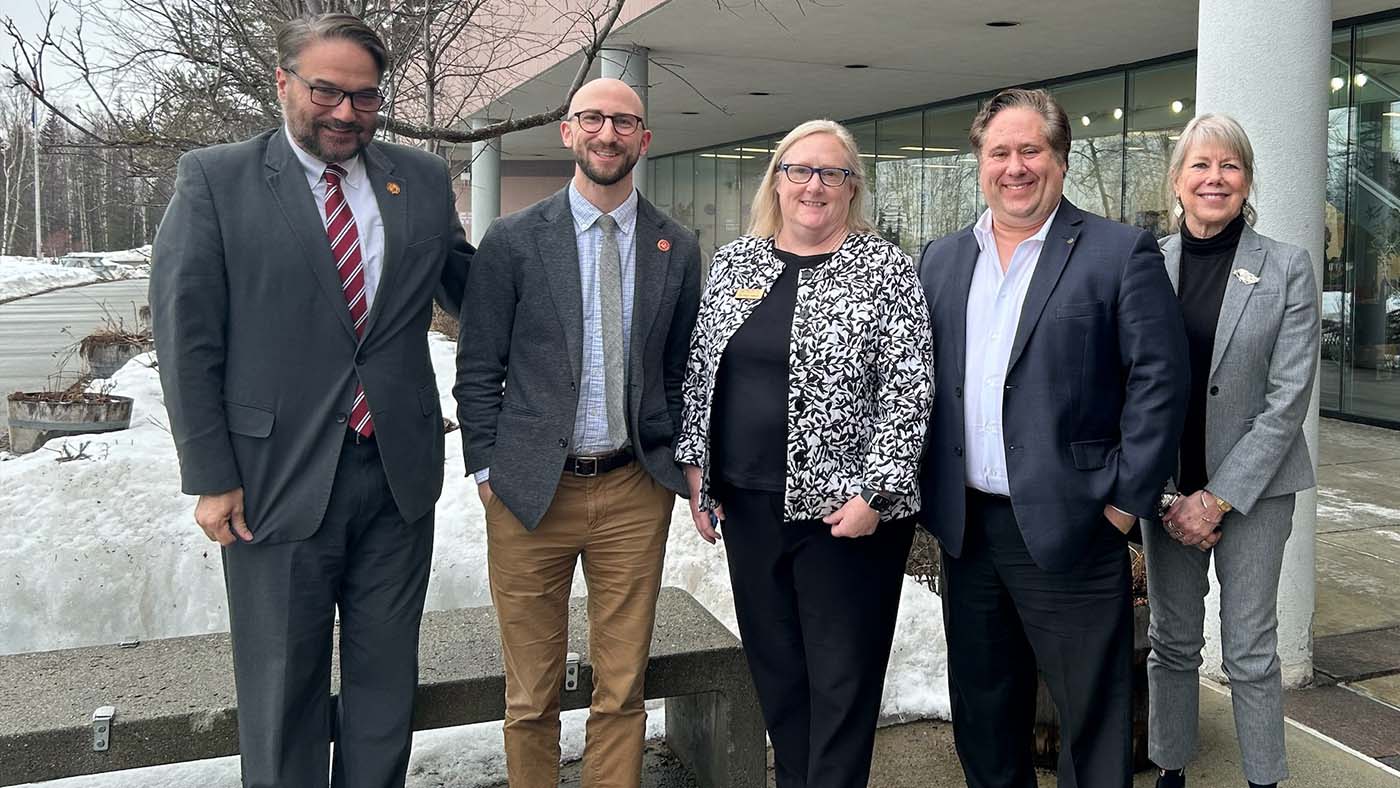A new dual degree program, offered in partnership between Seattle University School of Law and Alaska Pacific University (APU) in Anchorage, makes it possible for Alaskan students to remain in their home state, the only state without a law school, while earning law and business degrees.
The APU-Seattle U Law MBA/JD dual degree provides an accelerated path for both graduate degrees, with legal instruction provided by Seattle U Law’s nationally-lauded Flex JD Program through flexible, part-time, hybrid-online delivery. Except for a few weekends per year when they need to fly down to Seattle for in-person classes, students can complete most coursework online, with just a few required in-person class sessions held on several weekends on Seattle U’s campus.
“COVID taught us a lot, and one of the things we learned as lawyers, as legal educators, is that we can deliver high-quality legal education online,” said Seattle U Law Dean Anthony E. Varona at a launch event in Anchorage. “The legal profession has become a hybridized profession; lawyers are working remotely because law is now practiced in a hybrid way. It makes sense to learn law in a hybrid format because you’re going to practice law in a hybrid format.”
The program is a dual degree rather than a joint degree, meaning participants enroll in both programs and complete one discipline fully before starting the next (usually the MBA prior to the JD). Students must apply to and be accepted by each school separately.
“Our belief is that this dual degree will be highly valued by employers and open doors to high level positions in business, the law, and public policy,” said APU MBA Program Director Lincoln Garrick.
While the program allows students to earn both an MBA and a JD more quickly and with fewer credits, it is not necessary to pursue both degrees; students are welcome to enroll in Seattle U Law’s Flex JD Program without earning an MBA. Those Flex JD students who do attain an MBA first are able to transfer certain credits to accelerate the time needed to earn a law degree, or to lighten their courseload.
Elective law courses such as Native American Tribal Law and Tribal Court Practice will provide students in Alaska with experience in serving the state’s diverse communities.
“We have so much in common with Alaska Pacific in terms of what we value, what we emphasize,” Varona said.
This program is part of Seattle U Law’s commitment to increasing access to legal education in areas without law schools, sometimes called legal deserts. This past winter, Seattle U Law and the University of Washington-Tacoma established the South Sound Hybrid Hub at UW Tacoma’s campus to provide in-person and virtual programming, counseling, networking, employment, and experiential learning opportunities and resources for both UW Tacoma undergraduates and Seattle U Law Flex JD students. Tacoma is one of the largest cities in the nation without a law school. Seattle U Law also intends to establish a Hybrid Hub in the Yakima Valley.
“Alaska, the South Sound of Washington, and Central Washington have been clamoring for a law school presence for some time,” Varona said.
The Alaska Hybrid Hub, Varona said, “will have aspects of a brick-and-mortar law school without the brick and mortar,” such as nationally-renowned professors, alumni networks, and enlightening events such as Seattle U Law’s Luminaries in Law series.
“You’ll be able to stay employed and keep living with your families, you will not have to move to Seattle and give up your property while studying law,” Varona said. “And then after graduating, you will hopefully stay where you are to practice law, which addresses the legal desert issue.”
Both institutions have a history of partnering to offer programs that expand academic options available to Alaskan students.
“This partnership has been years in the making,” Garrick said. “Our hope is that the program increases access to knowledge, skills, networks, and opportunities, better allowing Alaskans to advance their careers and contribute to our shared community.”

